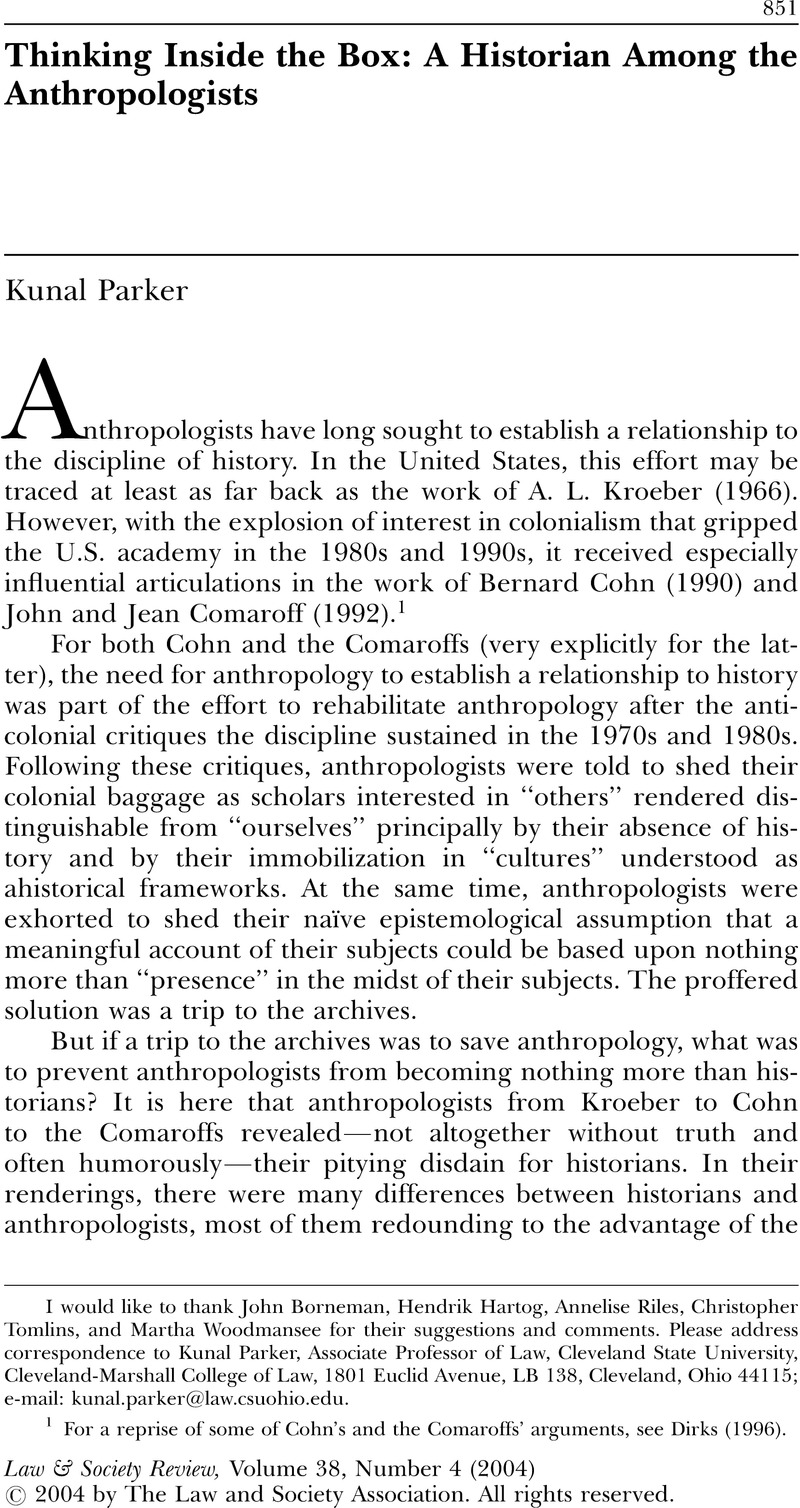Crossref Citations
This article has been cited by the following publications. This list is generated based on data provided by Crossref.
Mawani, Renisa
2012.
Law's Archive.
Annual Review of Law and Social Science,
Vol. 8,
Issue. 1,
p.
337.
Last updated 10th July 2024: Online ordering is currently unavailable due to technical issues. We apologise for any delays responding to customers while we resolve this. For further updates please visit our website https://www.cambridge.org/news-and-insights/technical-incident

Published online by Cambridge University Press: 01 January 2024

I would like to thank John Borneman, Hendrik Hartog, Annelise Riles, Christopher Tomlins, and Martha Woodmansee for their suggestions and comments.